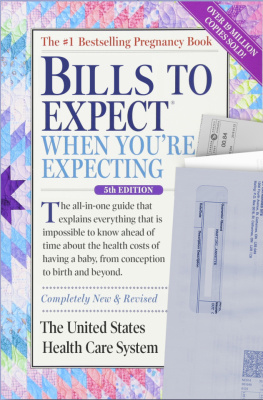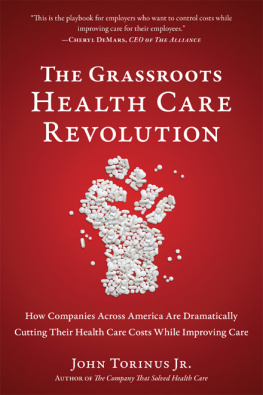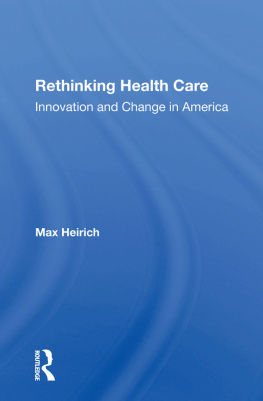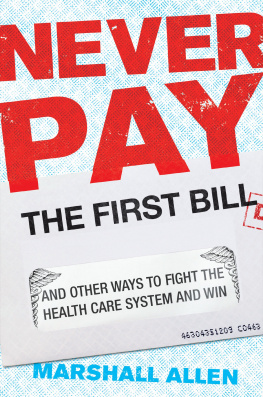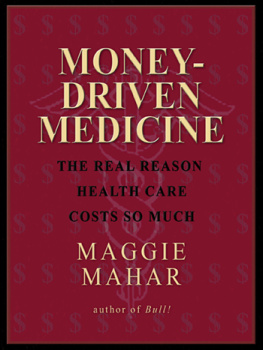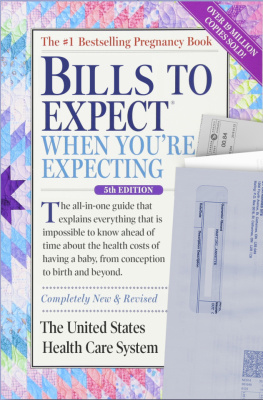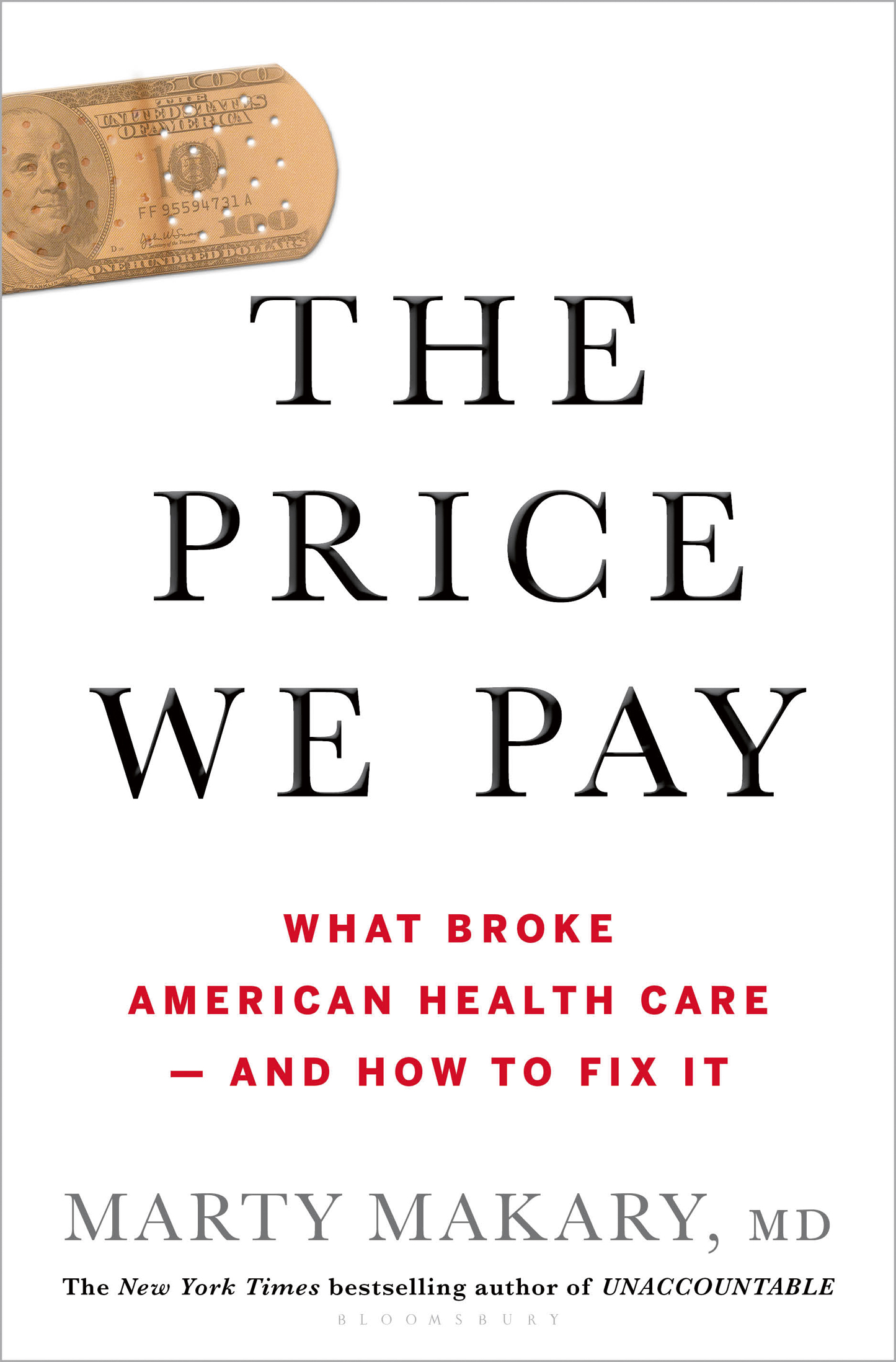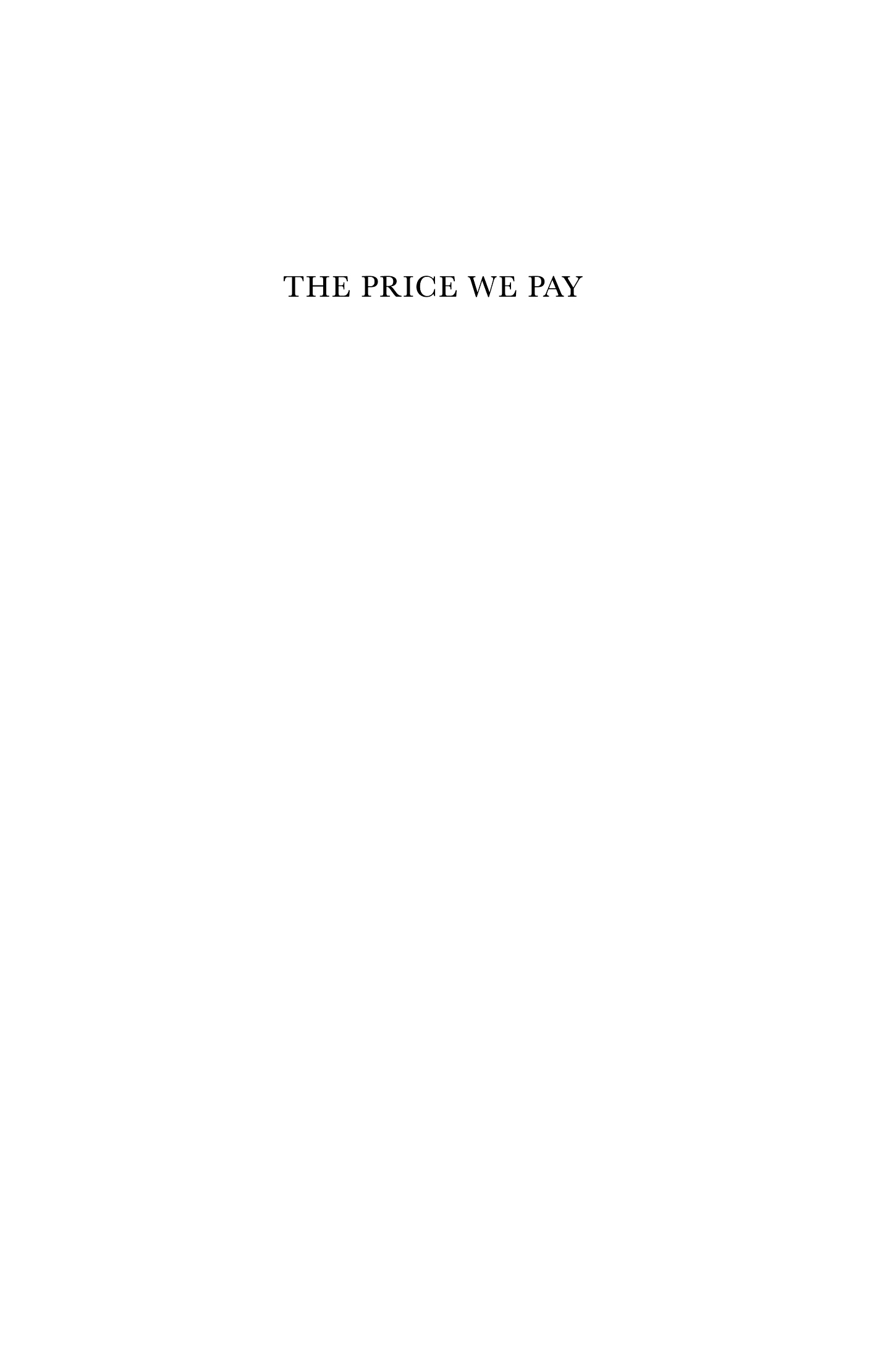
Dedicated to my father, whose compassion in caring for cancer patients has taught me that part of being a doctor is the responsibility to advocate for those who are most vulnerable
BY THE SAME AUTHOR
Unaccountable: What Hospitals Wont Tell You and How Transparency Can Revolutionize Health Care
Mama Maggie: The Untold Story of One Womans Mission to Love the Forgotten Children of Egypts Garbage Slums

Contents
Sometimes when I sit down to write, I find myself staring at a blank screen. Before I know it, Im buying toothpaste online. Writing this book was entirely different. As I traveled to see what American medicine looks like on the ground, I would rush back to my computer to write.
Over the past two years I visited 22 cities across America, listening to each of health cares stakeholders: hospital and insurance company leaders, policy makers, doctors and nurses and others. Ive also sat with scores of patientsin living rooms, over dinner, at workand theyve shared with me, sometimes through tears, how the business of medicine ruined their lives. I spoke with numerous insiders who went into health care for noble reasons but found themselves caught up in a system they despise. I was also inspired by innovators who refused to accept the status quo, redesigning medical care and launching businesses aimed at disrupting health care by cutting through all its shenanigans.
My goal has been to understand the business of medicine and to examine it through the lens of its clinical mission of serving patients. Surprisingly, this exhilarating trip was not entirely different from my work as a surgeon. Ive been making rounds on patients, but this time it was to see their wounds from the health care system rather than from surgery. Along the way, I learned what no health care textbook or classroom could have taught. I learned the money games of medicine.
As I cared for patients back home, between my travels researching this book, I was often reminded of the deep trust people have in their doctor. Patients are willing to let me put a knife to their skin within minutes of meeting me, or to divulge secrets theyve kept for a lifetimejust because Im a doctor. In exchange for this trust, doctors like me promise to do our best to help, a contract articulated in the Hippocratic Oath. Similarly, most American hospitals were founded with a charter dedicating them to care for the sick and injured regardless of ones race, creed, or ability to pay. But tragically, that heritage of public trust is threatened today by a business model of price gouging and inappropriate care. However, a groundswell of doctors are saying, No more. We must restore medicine to its noble mission.
For centuries, medicine was based on an intimate relationship between doctors and patients. But behind the scenes, a gigantic industry emerged: buying, selling, and trading our medical services. Health care industry stakeholders are playing a game, marking up the price of medical care, then secretly discounting it, depending on whos paying.
When a $69,000 bill hit one New York woman for a simple two-hour ER visit, she turned to my friend for help. She had only needed an IV and some basic tests, so she couldnt believe the price. My friend, a health care consultant, had a good relationship with the hospitals CEO so he met with him and told him about the two-hour visit in detail. Guess how much your hospital charged? my friend asked the CEO.
Cringing, the hospital CEO guessed $5,000, thinking he was guessing high. Then my friend showed him the itemized bill totaling $69,000. Embarrassed at how disconnected he was from his own hospitals billing practices, the CEO offered to forgive the bill.
This story reminded me that we dont have malicious leaders in health care; we have good people working in a fragmented system. The operations I do today use the same equipment, anesthetics, sutures, and paid staff that I used ten years ago. So how is it that health insurance costs have been skyrocketing? Its explained by the money games of medicine, loaded with middlemen, kickbacks, and hidden costs.
The profits are big but the casualties are great. Overtesting, overdiagnosing, and overtreatment are now commonplace in some areas of medicine.
While patients are getting shaken down for inflated bills, the health care establishment conducts high-level panel discussions in gilded conference rooms discussing the issues in theoretical terms. Ive been there. I sit on those panels too. But to understand what was really happening in health care, I shed my white coat and embarked on listening rounds across the country.
While these travels gave me the education of a lifetime, they also gave me new hope. I visited hospitals and start-ups charting new courses with fresh ideas. I met doctors, business leaders, insurance innovators, state legislators, millennials, and others fed up with the medical establishment and challenging it. This social movement has no formal name or membership, but is made up of people determined to put patients back at the center of medicine. They are working to make how you pay for medical care rational and fair instead of secretive and predatory. Using the simple principles of transparency and competition, they are showing us the way out of this mess. This book shines a light on many insider games of health care, but it will also introduce you to the innovators and disrupters working to save you money.
My favorite movie is The Big Short , a film about the financial crisis of 2007. Part of the reason I admire that movie is because it took an incredibly complicated problem and made it understandable by using stories and relatable examples. In this book, I want to do the same for American health care.
Before the Great Recession of 2007, Americans were being led to buy mortgages they didnt understand and could not afford. As I talked to families and business owners who purchased health care they didnt understand and couldnt afford, I began seeing ominous signs that health care has become another economic bubble.
A woman in California helped me appreciate the burden that our rising health care costs place on small businesses. To start her dry cleaning business, Jennifer had to pay $100,000 a year to get health insurance for herself and three employees.
The 2007 banking crisis resulted from complexity that kept onlookers confused. When people questioned banks being overleveraged and selling mortgages to people who couldnt afford them, financial experts responded by saying, Its extremely complicated. Leave it to us. But the problem was simple: Banks were spending money on toxic assets with money they didnt have. Bad mortgages were bundled and sold on the market for more than they were worth. Credit ratings agencies, supposedly independent, received payments to prop up this house of cards. The result was a huge economic disaster.
Today, entrenched stakeholders in medicine fend off criticism by claiming these highly complex systems should be left to the experts. You wouldnt understand leave it to us.
But we do understand, and its time to change the business of medicine. This book is my attempt to push back. We currently spend enough money to provide excellent health care to every American. Its time to cut the waste.
The Washington Monument, encircled by American flags, loomed tall and proud that sunny morning as I made the 20-minute drive through D.C. from my home in Virginia. I arrived at the office of Dr. Sridhar Chatrathi. He worked in Prince Georges County, a predominantly African American suburb of Washington, D.C. I learn a lot from talking to community doctors like Chatrathi. In the lobby of his cardiology clinic, he welcomed me with a cheerful smile before ushering me into his office. Skipping the pleasantries, he got straight to the point. A fast-growing trend he was witnessing weighed on his conscience: doctors doing unnecessary vascular procedures.

